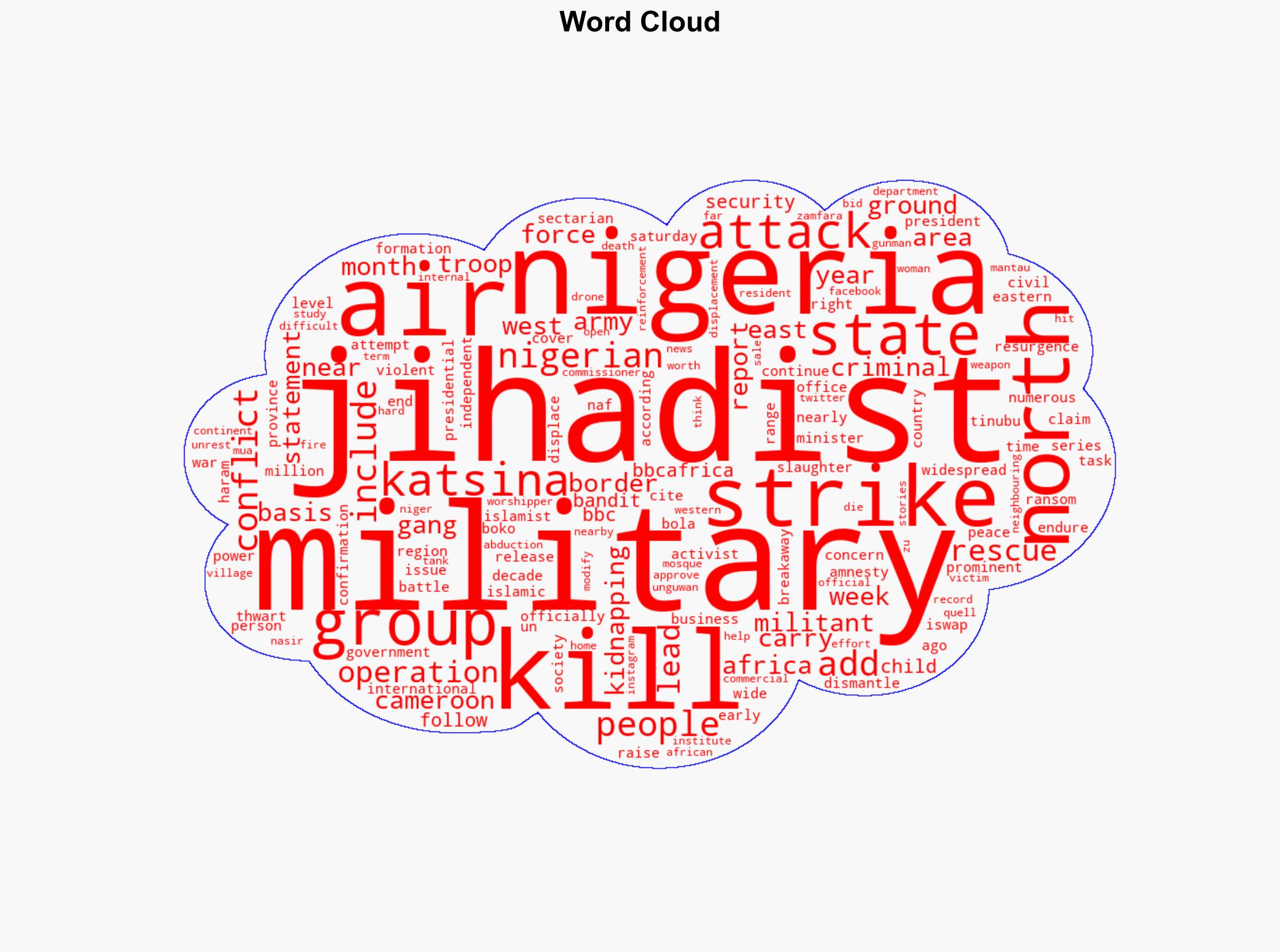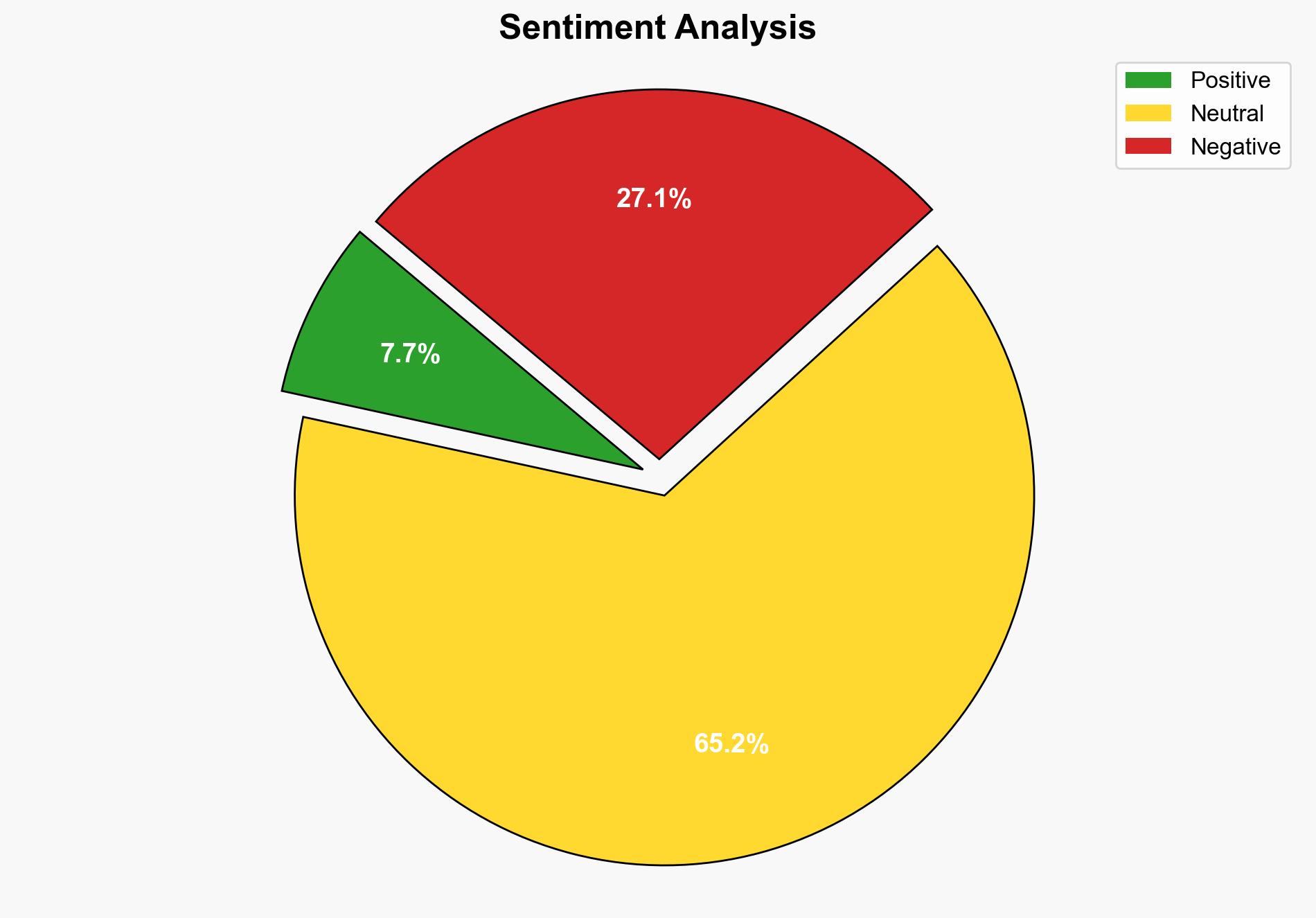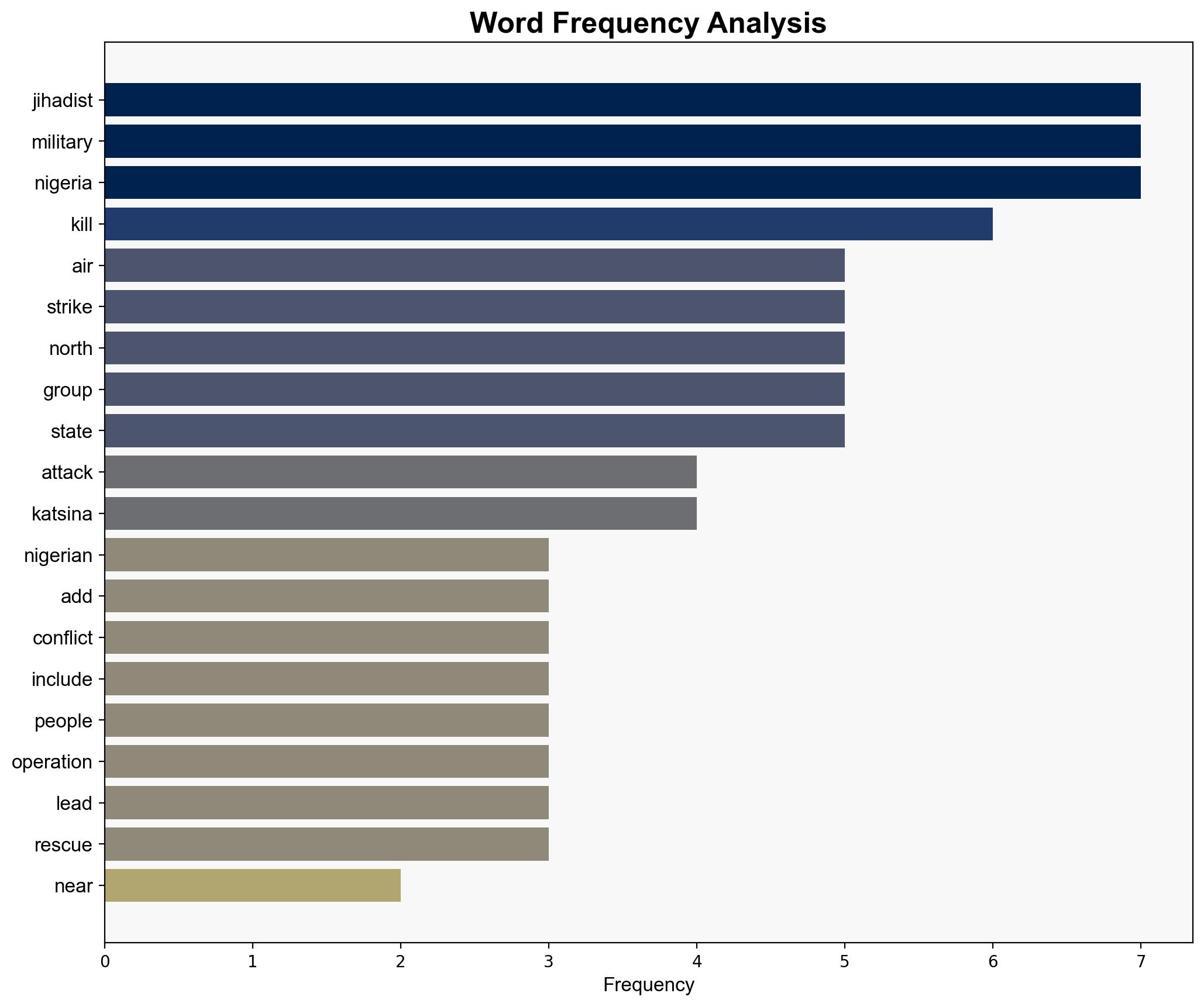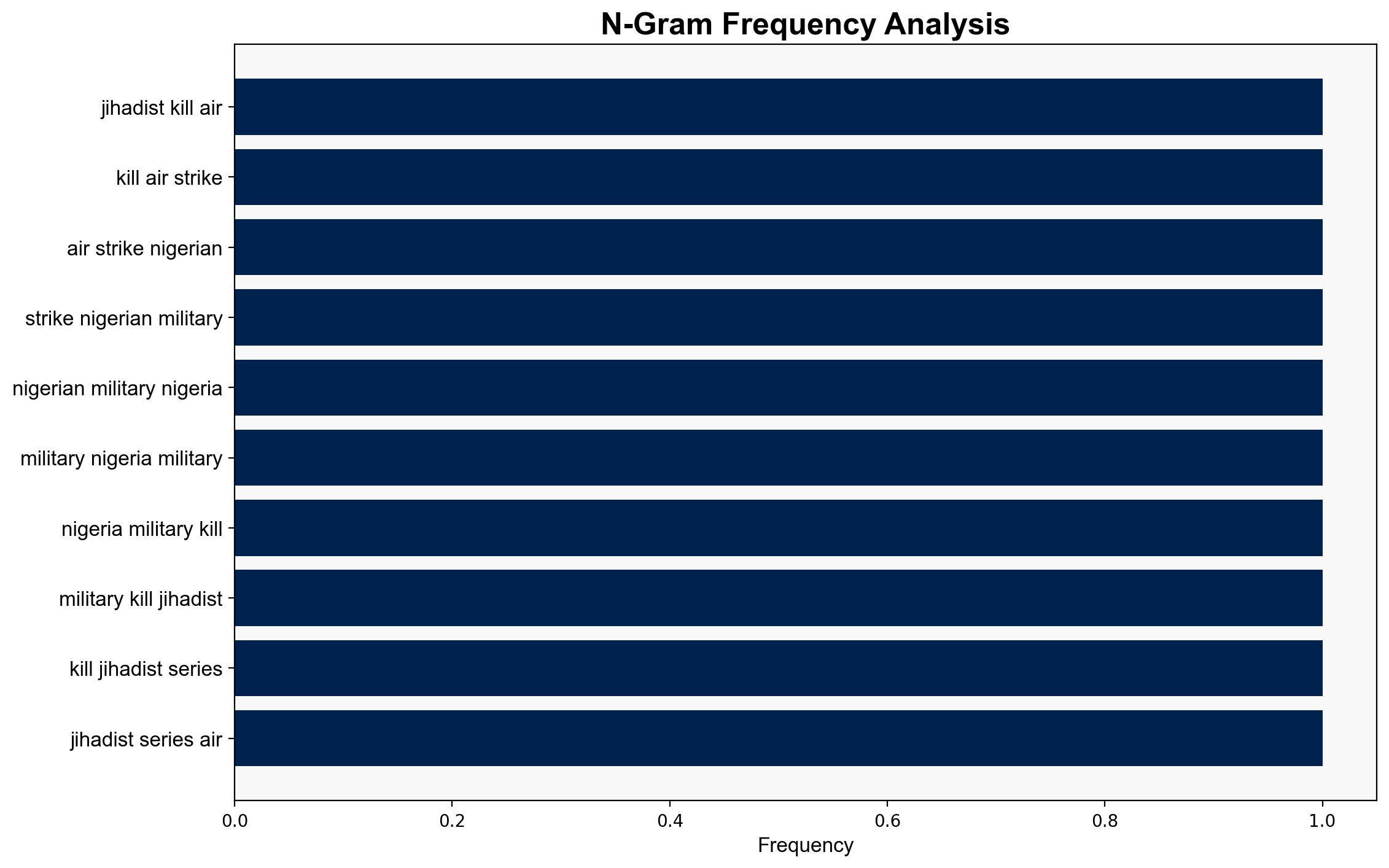More than 30 jihadists killed in air strikes Nigerian military says – BBC News
Published on: 2025-08-24
Intelligence Report: More than 30 jihadists killed in air strikes Nigerian military says – BBC News
1. BLUF (Bottom Line Up Front)
The Nigerian military’s claim of killing over 30 jihadists in airstrikes near the northeastern border with Cameroon is part of ongoing efforts to combat militant groups like Boko Haram and ISWAP. The most supported hypothesis is that these strikes are a tactical success but may not significantly alter the strategic landscape due to the persistent and adaptive nature of these groups. Confidence level: Moderate. Recommended action: Enhance intelligence-sharing and regional cooperation to address the root causes of militancy.
2. Competing Hypotheses
Hypothesis 1: The airstrikes represent a significant tactical victory that will degrade jihadist capabilities in the region. This interpretation is supported by the reported number of casualties and the disruption of planned attacks on ground troops.
Hypothesis 2: The airstrikes, while tactically successful, are unlikely to have a lasting impact on jihadist operations due to their ability to adapt and recruit. This view is supported by the historical resilience of groups like Boko Haram and ISWAP, as well as ongoing instability in the region.
3. Key Assumptions and Red Flags
Assumptions:
– The reported number of casualties is accurate and reflects a significant portion of the jihadist forces in the area.
– The strikes have disrupted immediate jihadist operations.
Red Flags:
– Lack of independent confirmation of the casualty figures.
– Potential bias in military reporting to emphasize success.
– Ongoing recruitment and adaptation by jihadist groups.
Blind Spots:
– Limited information on the long-term impact of the strikes on jihadist recruitment and morale.
– Insufficient data on the socio-economic conditions driving local support for jihadist groups.
4. Implications and Strategic Risks
The airstrikes may temporarily disrupt jihadist activities, but the underlying issues of poverty, governance, and regional instability remain unaddressed. There is a risk of retaliatory attacks, increased recruitment, and further destabilization. The continued presence of jihadist groups poses threats to regional security, economic development, and humanitarian conditions.
5. Recommendations and Outlook
- Enhance regional intelligence-sharing and military cooperation to improve the effectiveness of counter-terrorism efforts.
- Invest in socio-economic development programs to address the root causes of militancy.
- Scenario-based projections:
- Best Case: Sustained military pressure and regional cooperation lead to a significant reduction in jihadist activities.
- Worst Case: Jihadist groups adapt and retaliate, leading to increased violence and instability.
- Most Likely: Continued cycles of military action and jihadist adaptation, with no significant change in the strategic landscape.
6. Key Individuals and Entities
– President Bola Tinubu
– Amnesty International
– Nigerian Air Force (NAF)
– Boko Haram
– Islamic State West Africa Province (ISWAP)
7. Thematic Tags
national security threats, counter-terrorism, regional focus




